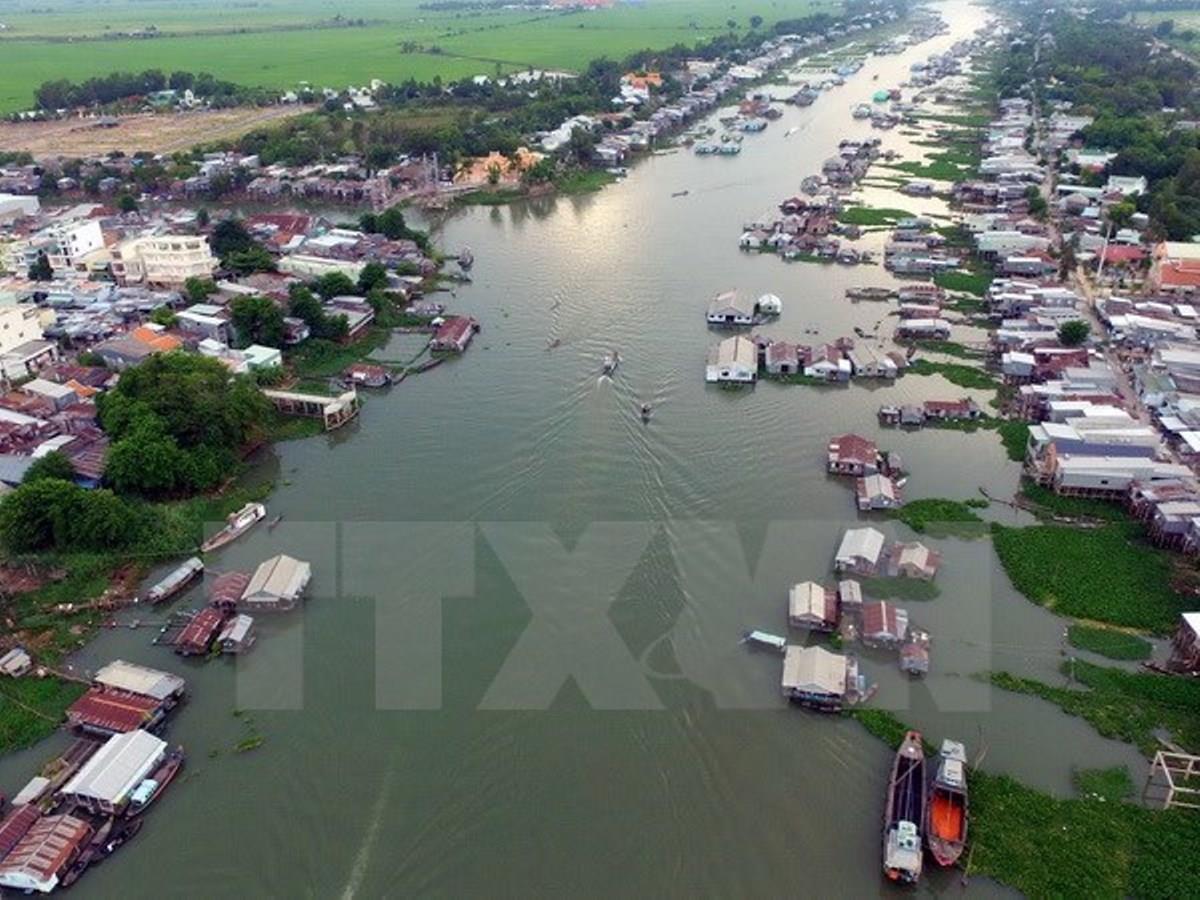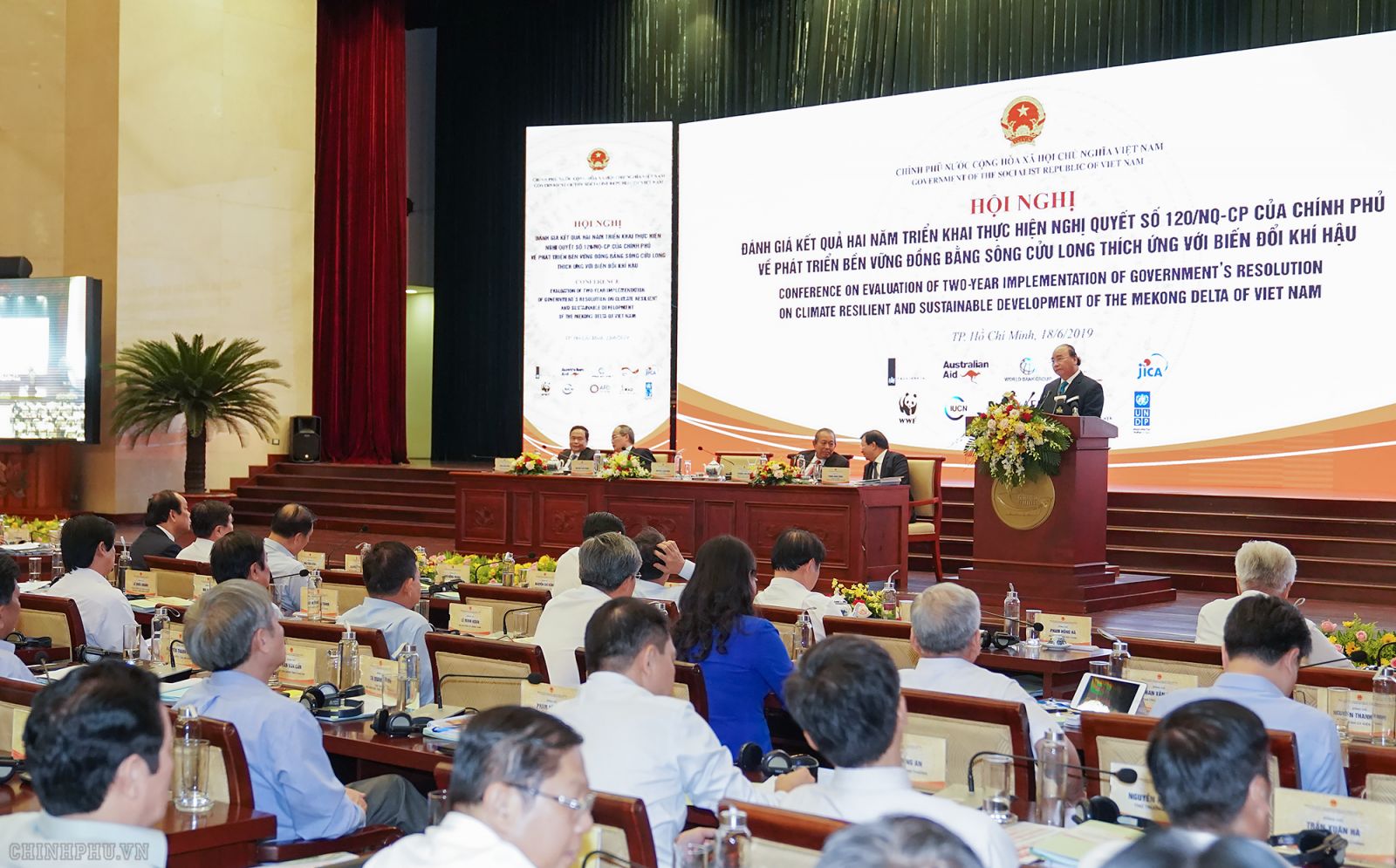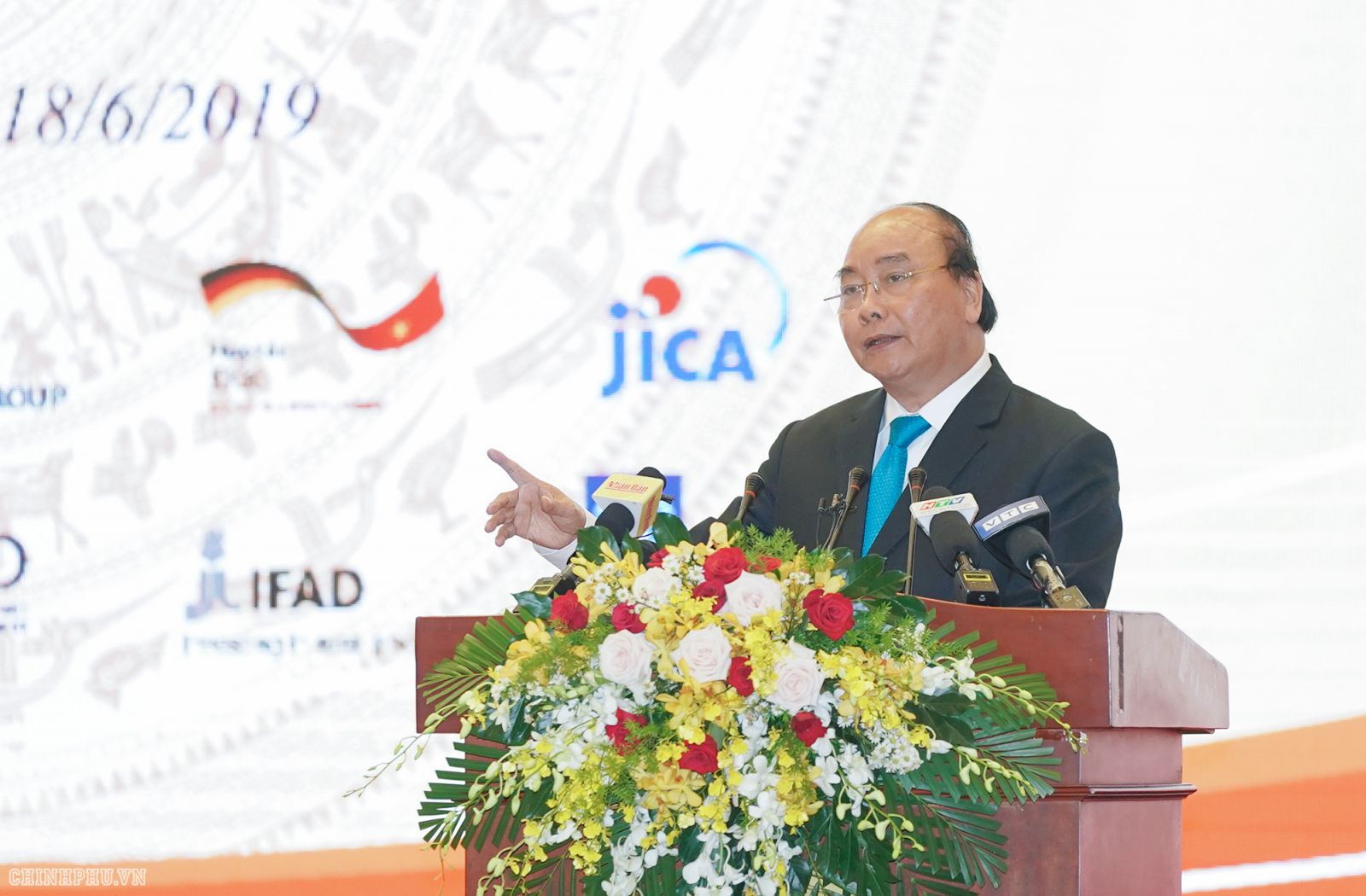
An aerial view of the Mekong Delta. (Photo: VNA)
The projects are mainly in building infrastructure for transport connection, industrial parks and residential areas; along with in other areas like agriculture, industry, river protection and waste treatment.
HCM City has signed cooperation agreements with 13 Mekong Delta localities to help them fully tap investment resources and promote their advantages in the socio-economic development, said Vice Chairman of the municipal People’s Committee Tran Vinh Tuyen.
The cooperation also aims to offer more chances for investment market expansion and enhancement of human resources capacity, meeting local demands on socio-economic development.
In implementing the Government’s Resolution 120/NQ-CP on sustainable development of the Mekong Delta in response to climate change, HCM City has devised a plan on the development of a meteorological and hydrological network. The city has also worked to increase the use of renewable and new energy, and joined hands with surrounding provinces to share data and information on water pollution risks.
Some works of transport infrastructure linking HCM City with Mekong Delta localities have been put into operation, particularly the HCM City-Trung Luong expressway.
The city is calling for more investment for HCM City Ring Roads No.3 and No.4, which will connect the city, other southeastern provinces with the Mekong Delta.
At present, nearly 90 percent of goods to the Mekong Delta via sea route, with 80 percent of them being transported through ports in the southeastern region.

A view of the thematic forum on master planning, regional coordination mechanism and investment attraction for the Mekong Delta. (Source: VGP)
The Vietnamese government is scheduled to allocate VND45 trillion (nearly US$2 billion) in the next five years to boost economic development in the Mekong Delta region, according to Nguyen Chi Dung, Minister of Planning and Investment, at a thematic forum on master planning, regional coordination mechanism and investment attraction for the Mekong Delta held June 18, as part of the Mekong Delta Forum 2019.
Dung said that the Government has invested heavily in the region, but the investment remains inadequate. The region has yet to have any deepwater seaports or railways, and the waterways are still underdeveloped, Tuoi Tre Online newspaper reported.

Prime Minister Nguyen Xuan Phuc addressed the event. (Source: VGP)
On this issue, Prime Minister Nguyen Xuan Phuc requested related government agencies and provinces to review the mechanism for capital mobilization and facilitating a financial market for Mekong Delta region.
Dung pointed out that half of the proposed amount is expected to be sourced from the State budget and the remainder from private sources.
Such joint efforts would ensure an investment capital influx of US$2 billion in the 2016 – 2020 period for the Mekong Delta region to speed up large scale projects in the fields of infrastructure development and tackling climate change issues, Phuc added.
The amount has been calculated carefully and will be approved by the National Assembly (NA).
The region’s management council will determine the order of priority of projects.
Nguyen Duc Hai, head of the NA’s Committee on Finance and Budget, backed Dung’s proposal, stating that this is an important national program.
He remarked that VND45 trillion is not a large investment for developing a region as important as the Mekong Delta.
Deputy Minister of Finance Tran Xuan Ha also agreed to the proposal, saying that the capital poured into the region was not enough to meet the region’s development needs.
Minister of Transport Nguyen Van The said transport infrastructure projects with sufficient funds are expected to be completed in the near future, especially expressways projects connecting Ho Chi Minh City with provinces and cities in Mekong Delta and upgrading national highways.
The inland waterway and logistics projects in southern region financed by the World Bank is scheduled to start construction in 2020 and completed by 2025, The informed.
The transport minister said his ministry would consider upgrading the capacity of the Phu Quoc International Airport and encourage airlines to open new flight routes connecting Can Tho Airport with other provinces.
According to the Ministry of Planning and Investment, public investment fund (10% of contingency excluded) for the Mekong Delta region in the 2016 – 2020 period is nearly VND194 trillion (US$8.3 billion), accounting for 16.53% of the total.
The fund would be mainly focused on agriculture, transportation and healthcare development.


















